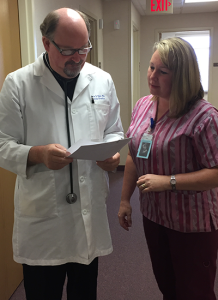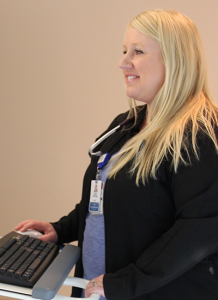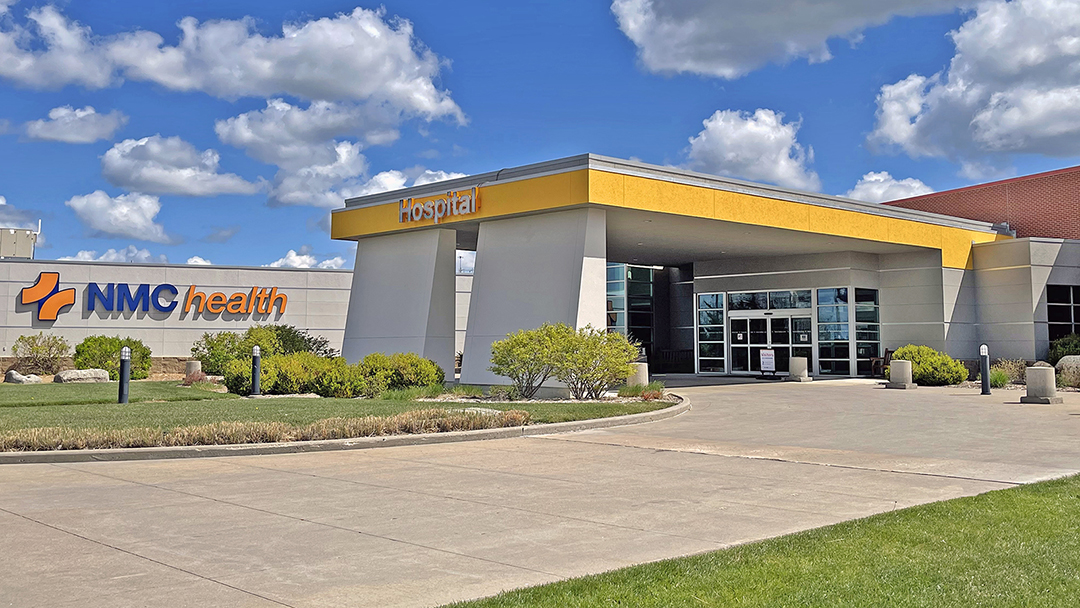Today, on National Doctors’ Day, we celebrate our physicians for the excellent care they provide to our community each and every day. This week we spoke with a few of Newton Medical Center’s providers.
Representing different areas of healthcare, each provider shared what inspired them to enter the medical field and insights from throughout their careers. Read on for their thoughts and stories.
Stephen Cranston, MD, FACS, recently retired from general surgery at Newton Surgical Group in 2016. He shared how many people inspired him to become a physician.
Dr. Cranston’s aunt was a nurse and as a young boy he always enjoyed listening to her stories. He explained that she was a very professional and smart woman, who had a quick wit and he wanted to be just like her.
He goes on to explain that in high school, he became friends with a lady whose father was a family practice physician.
“He was very good to me,” said Dr. Cranston. “He was always very helpful in answering questions and stimulating my interest in medicine. He encouraged me to go to college and, if still interested in medicine, to apply to medical school.”

Dr. Stephen Cranston
Dr. Cranston went on to complete his undergraduate education at the University of Kansas in the College of Liberal Arts and Science. After this education, he realized that it had set a foundation from which he could build on for the rest of his life.
“It helped guide my path into medicine and to be an effective physician,” said Dr. Cranston.
Dr. Cranston added that the ‘lady’ in high school has been his companion for 57 years and has greatly helped his success in medicine.
When asked about the changes he’s seen during his career, Dr. Cranston spoke of two major changes. The first, how the evolution of minimally invasive operation has been most important in the care of patients.
“The decrease in pain and stress on the body has had many rewards for both the patient and surgeon,” said Dr. Cranston. “For certain operations, the robotic platform should always be the first choice if possible.”
The second is the advancement in the understanding of human physiology and genetics.
“These advancements have greatly enhanced our understanding and treatment of human conditions,” explains Dr. Cranston. “Cancers that were considered a death sentence in the past are now treated easily by oncologists and surgeons. The disfiguring procedures surgeons did are now gone. What’s sad is that a lot of these procedures for certain cancers were never necessary; we just didn’t understand the biology of cancer.”
When we asked Dr. Cranston what his thoughts were on how physicians will make a difference in the future, he explained that he believes that physicians will continue to push the envelope in understanding diseases and advancing their treatment.
“The physician-scientist, those recognizing a disease and taking it to a lab to solve, has been the history of medicine,” said Dr. Cranston. “And this history will continue.”
When it comes to advice, Dr. Cranston believes that there are three points that could be used universally. One – if you have an interest in a subject, find a mentor to help you. Two – learn the importance of relationships. It is all about relationships. Three – be nice.

Dr. Mark Hall
Mark Hall, MD, is a family medicine physician at Newton Medical Center’s primary care clinic, Mid Kansas Family Practice in Hesston. When asked about his decision to enter the medical field, Dr. Hall explained that it was his father, a pharmacist, who inspired him to pursue a medical career. There were also two local family physicians in his hometown of Quinten, KS who Dr. Hall admired, and they became role models for him as his interest in healthcare grew.
Reflecting back on his medical career, Dr. Hall notes major changes in healthcare.
“During my career, I’ve seen an increasing burden of paperwork caused by the computerization of medicine and the involvement of the government and insurance,” said Dr. Hall.
He noted that this change has required him to spend more time on documentation, limiting the time available to spend with patients.
So, in order to overcome this, Dr. Hall utilizes a scribe, Lyndsay Guhr, LPN (pictured with Dr. Hall) to help with documentation, allowing him to spend more time with patients.
When asked about the future roles of doctors, Dr. Hall replied, “Future family physicians will be instrumental in providing medical care augmented by mid-level practitioners and nurses who will increasingly provide primary care services. Supervising and delegating will be necessary given the growing administrative burdens of our healthcare system.”
The best advice for providers, Dr. Hall believes, is “treat your patients and staff as you would like to be treated.”
On National Doctors’ Day, we also honor our mid-level providers, such as Julie Deering, MSN, FNP, APRN-C. Julie works in Newton Medical Center’s Emergency Department as well as with inpatients as a hospitalist.
When Julie was a child, she spent time in large children’s hospitals and knew she wanted to be a nurse to help sick and injured people.
“Once I was a registered nurse (RN), I wanted to continue my education with advance practice to gain a higher level of education about medicine as well as increased autonomy,” she explains.
Over the past 20 years, she explains, there have been many exciting new techniques in practice, improved tools and additional medications and resources that have improved patient outcomes and practice.
In the future, Julie believes that physicians, as well as nurse practitioners and physician assistants, will continue to make a big difference in health care and patient lives, despite the challenges that are facing healthcare today.

Julie Deering MSN, FNP, APRN-C
“This community of health care providers is one of a kind and practice with compassion and integrity,” she goes on to say. “I am honored to be a part of it.”
When asked what the best advice she’s ever given or received, Julie answered with “it’s never the wrong choice to do what is right for the patient.”


